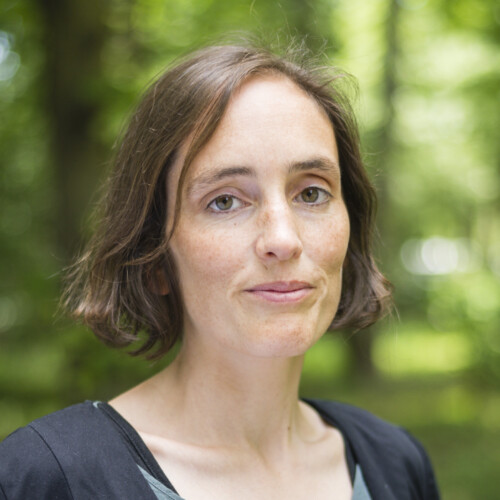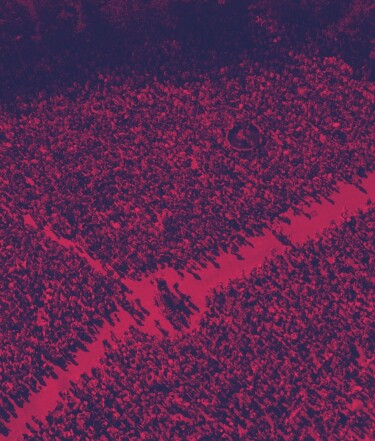
Democratic Center Ludwigsburg
The Democratic Center Ludwigsburg (DemoZ) has been deprived of its non-profit status. We have filed a joint appeal.
Political education not without political principles
At the DemoZ in Ludwigsburg, interested people have been coming together for a variety of events and offerings for more than 40 years. The art and culture program includes concerts, cabaret evenings, exhibitions and readings, as well as regular offerings such as open nude drawing, the dance and theater group or drumming workshops. In addition, political information events and workshops are held on a wide range of topics, from the sustainable use of resources to behavior at demos. "For cultural life in the city, a diverse program that is accessible to all is crucial. DemoZ contributes to this through its mostly free program," explains Yvonne Kratz, board member of DemoZ.
The center excludes people from its activities who "belong to right-wing extremist parties or organizations, are associated with the right-wing extremist scene or have attracted attention in the past for racist, nationalist, anti-Semitic or other inhuman statements." A corresponding clause can be found on the DemoZ
website. There it also makes clear: "We are independent of parties and nevertheless, or precisely because of that, position ourselves politically."
How far must "intellectual openness" go?
In the past, the DemoZ was recognized by the tax office as a non-profit organization and, as a tax-exempt organization, was able to solicit deductible donations and receive government subsidies. According to its statutes, as a registered association it is committed to the "democratization of society and the equal rights of all people" and, to this end, promotes "popular education" and cultural life in Ludwigsburg. The purpose of the statutes falls under the charitable purposes "popular education" and "culture" recognized in Section 52 of the German Tax Code.
In a notice dated October 24, 2019, the Ludwigsburg tax office has now revoked DemoZ's non-profit status. It denies DemoZ the "intellectual openness" in its educational work, which according to the tax office is expressed in the political positioning of the center. The exclusion clause of DemoZ also shows that the association does not serve the general public, as required by the tax code.
"Political education" depoliticized by Attac ruling
The Ludwigsburg tax office bases its assessment on the ruling of the Federal Fiscal Court (Bundesfinanzhof, BFH) of January 10, 2019, in which the BFH, with reference to the globalization-critical organization Attac, takes the view that the latter pursues political purposes with its activities and is therefore not a non-profit organization. In drawing the line between non-profit associations and political parties, the Federal Fiscal Court overshoots the mark by far: it denies the educational character of political engagement in the form of political influence. Political education is not eligible for funding if it is used to specifically influence the formation of political will and public opinion.
In Ludwigsburg, the tax office interpreted this restrictive BFH ruling one-sidedly to the detriment of the DemoZ. In doing so, it overlooks the fact that DemoZ does not influence concrete political events. Lobbying is not part of its field of activity. Rather, the tax office is offended by the political stance of DemoZ. But a completely attitude-free discussion of social issues is hardly possible. An open democratic discourse also requires civil society actors to critically examine existing conditions and develop political positions.
Non-profit status - more than donation receipts
Small, locally active initiatives make an indispensable contribution to a vibrant democracy. Official recognition as "non-profit" is essential for such organizations - both for their financing through donations, project funding and government grants, and for their public perception.The BFH ruling, which is problematic in any case, must not lead to a practice of the tax offices in which non-partisanship is generally equated with value neutrality. The GFF supports the DemoZ in order to counteract this development and to create legal certainty for civil society political engagement. DemoZ filed an appeal against the revocation of its non-profit status with the tax office on November 25, 2019 and substantiated it on January 20, 2020.On September 29, 2020, DemoZ received another letter in which the tax office questioned the legal relationships with all alliances that had planned events at DemoZ. These questions were answered by DemoZ on November 24, 2020. On March 3, 2021, the DemoZ again received no decision, but another letter in which the tax office outlined on 17 pages the political stance of the Libertarian Alliance Ludwigsburg-Stuttgart, classified it predominantly as anarchist and anti-capitalist, and listed the participation of the Libertarian Alliance in events and discussion rounds at the DemoZ. In its statement of April 29, 2021, the DemoZ explained its mode of operation as a socio-cultural center based on plurality, in which numerous individuals, organizations and alliances can also hold and participate in events on their own initiative. The DemoZ does not adopt the positions of the individual actors. Since this letter was written, no decision has been made by the tax office to date.
Legal clarification urgently needed
The case of DemoZ shows that a reform of the non-profit law remains urgently necessary. Even the recently issued amendments to the application decree of the German Fiscal Code, on which the finance ministries of the federal and state governments had agreed, do not bring any clarity. The administrative regulation merely adopts the criterion of "intellectual openness" developed by BFH case law without further explanation. The legislature should therefore act promptly, as promised in the coalition agreement, and anchor a modern understanding of civic education in the law. We have proposed wording to this effect in our draft bill.
Political education not without political principles
At the Democratic Center Ludwigsburg (DemoZ), interested people come together for a variety of events and offerings. The art and culture program includes concerts, cabaret evenings, exhibitions and readings as well as regular offerings such as open nude drawing, the dance and theater group or drumming workshops. In addition, political information events and workshops are held on a wide range of topics, from the sustainable use of resources to behavior at demos.
The center excludes people from its activities who "belong to right-wing extremist parties or organizations, are associated with the right-wing extremist scene or have attracted attention in the past through racist, nationalist, anti-Semitic or other inhumane statements". A corresponding clause can be found on the DemoZ website. There it also makes clear: "We are independent of parties and nevertheless, or precisely because of that, position ourselves politically."
How far must "intellectual openness" go?
In the past, DemoZ was recognized by the tax office as a non-profit organization and, as a tax-exempt organization, was able to solicit deductible donations and receive government grants. According to its statutes, as a registered association it is committed to the "democratization of society and the equal rights of all people" and, to this end, promotes "popular education" and cultural life in Ludwigsburg. The purpose of the statutes falls under the charitable purposes "popular education" and "culture" recognized in Section 52 of the German Tax Code.
In a notice dated October 24, 2019, the Ludwigsburg tax office revoked DemoZ's non-profit status. It denies DemoZ the "intellectual openness" in its educational work, which according to the tax office is expressed in the center's political positioning. The exclusion clause of DemoZ also shows that the association does not serve the general public, as required by the tax code.




